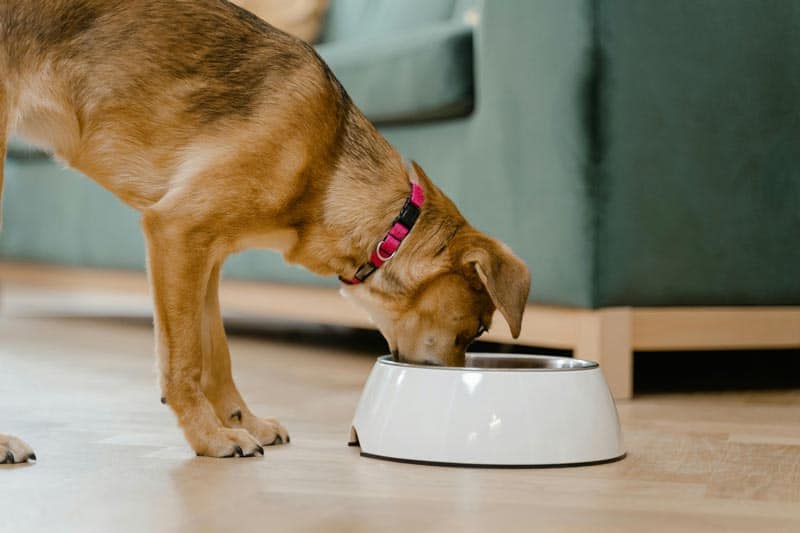Picture this: you’re making scrambled eggs for breakfast, and your furry best friend is giving you those irresistible puppy dog eyes. You toss the eggshells in the trash, but then a thought hits you –
can dogs eat egg shells? Maybe I’m just overthinking things (trust me, I do that a lot when it comes to my dog), but it turns out this is actually a pretty common question among responsible pet parents.
The short answer is yes,
dogs can eat egg shells – but there’s definitely a right way and a wrong way to go about it. Let’s crack into this topic together, shall we?
Are Egg Shells Good for Dogs? The Surprising Benefits
Here’s where things get interesting.
Are egg shells good for dogs? Well, they’re basically nature’s calcium tablets. One teaspoon of ground eggshell powder contains around 800 to 1,000 mg of calcium – that’s pretty impressive for something most of us just toss in the garbage.
Your dog’s body uses calcium for way more than just strong bones and teeth. We’re talking about muscle function, blood clotting, and even nerve transmission. Pretty amazing what a simple eggshell can do, right?
The Calcium Connection
Now, before you start thinking eggshells are some magical superfood, let me be clear – most commercial dog foods already contain plenty of calcium. But there are some situations where
egg shells for dogs might actually be helpful:
Dogs on homemade diets often need extra calcium supplementation. Pregnant or nursing dogs have higher calcium needs. Senior dogs might benefit from additional calcium support (though always check with your vet first). Growing puppies need calcium for proper development.
I learned this the hard way when I first started making homemade food for my rescue pup, Max. My vet pointed out that my carefully crafted meals were missing some key nutrients, including adequate calcium. Who knew being a dog chef was so complicated?
Can Dogs Have Egg Shells Raw? The Safety Scoop
This is where I have to put on my responsible pet parent hat.
Can dogs eat egg shells raw? Technically yes, but it’s not the smartest move. Raw eggshells can harbor bacteria like salmonella, and those sharp edges aren’t exactly tooth-friendly.
Sure, dogs have pretty robust digestive systems that can handle more bacteria than us humans. But why take the risk when there’s a much safer way to prepare them?
The Bacteria Problem
Raw eggs and eggshells can carry nasty bacteria that might cause stomach upset, diarrhea, or worse. While
the American Kennel Club notes that dogs can handle some bacteria better than humans, it’s still not worth the gamble.
Think of it this way – would you eat raw chicken just because you probably wouldn’t get sick? Same logic applies here.
How to Safely Prepare Egg Shells for Dogs
Okay, here’s where I get into the nitty-gritty details. Preparing
eggshells for dogs safely isn’t rocket science, but there are definitely some important steps you can’t skip.
Step 1: Choose Your Eggs Wisely
Not all eggs are created equal, my friends. You want to stick with eggs from organic, pasture-raised chickens when possible.
Dogs Naturally Magazine recommends avoiding most grocery store eggs because they’re often treated with chemicals to make them look shiny.
I usually grab mine from the local farmer’s market – partly because they’re better quality, and partly because I like chatting with the farmers about their chickens. Yes, I’m that person.
Step 2: Clean Thoroughly
Once you’ve cracked your eggs for breakfast (or whatever culinary masterpiece you’re creating), rinse those shells with warm water. Remove any leftover egg white or membrane – this stuff can go bad quickly and attract bacteria.
Step 3: Bake for Safety
Here’s the crucial part that many people skip. Pop those clean shells in your oven at 300°F for about 10 minutes. This kills any harmful bacteria lurking around. I usually do this step right after I’m done cooking, while the oven is still warm from whatever I just made.
Step 4: Grind to Powder
Once your shells are cool, it’s time to break out the coffee grinder (or food processor, or even a mortar and pestle if you’re feeling old-school). Grind those shells into a fine powder – we’re talking baby powder fine, not chunky bits that could be a choking hazard.
Pro tip: I keep a separate coffee grinder just for this. Trust me, eggshell-flavored coffee is not a thing you want to experience.
How Much Eggshell Can Dogs Have?
This is where moderation becomes your best friend. Too much calcium can actually be harmful – we’re talking kidney stones, hypercalcemia, and other issues you definitely want to avoid.
Generally speaking, a small pinch of eggshell powder sprinkled over your dog’s food is plenty. For small dogs, we’re talking about 1/4 teaspoon max. Larger dogs might handle up to 1/2 teaspoon, but honestly, it’s best to check with your vet for specific recommendations based on your dog’s size and health needs.
I made the mistake early on of thinking “if a little is good, more must be better.” Spoiler alert: that’s not how nutrition works, and my vet was not thrilled with my overzealous calcium supplementation.
Are Eggshells Safe for All Dogs?
Here’s where things get a bit more complicated. While
are eggshells good for dogs is generally answered with a yes, there are some important exceptions.
Dogs Who Should Skip the Shells
Dogs with a history of calcium oxalate bladder stones should steer clear of eggshells.
According to veterinarian Dr. Michelle Burch, the extra calcium could increase their risk of developing more stones.
Dogs with kidney problems or high calcium levels in their blood also need to avoid this supplement. And if your dog is already on a calcium supplement or eating a calcium-rich diet, adding eggshells might push them into “too much of a good thing” territory.
What Do Vets Really Think About Dogs Eating Egg Shells?
The veterinary community is pretty split on this one, to be honest. Some vets are totally on board with properly prepared eggshells as a natural calcium supplement. Others prefer commercial supplements because the dosing is more controlled.
Loveland Regional Animal Hospital notes that while eggshells can be safe when properly prepared, moderation is absolutely key to preventing health problems.
My own vet falls into the “cautiously optimistic” camp. She’s fine with me giving Max a tiny bit of eggshell powder occasionally, but she always reminds me that his regular food already provides everything he needs nutritionally.
Alternative Calcium Sources for Dogs
Let’s be real here – eggshells aren’t the only way to boost your dog’s calcium intake. If the whole shell-grinding process sounds like too much work (and I totally get that), there are other options.
Commercial calcium supplements designed for dogs are probably the most foolproof option. You can also find calcium-rich dog foods, or talk to your vet about adding plain yogurt or cottage cheese to your dog’s diet.
Commercial calcium supplements designed for dogs are probably the most foolproof option. You can also find calcium-rich dog foods, or talk to your vet about adding plain yogurt or cottage cheese to your dog’s diet.
Signs Your Dog Might Need More Calcium
How do you know if your dog could benefit from extra calcium in the first place? Here are some things to watch for, though these symptoms could indicate other health issues too:
Dental problems or tooth loss, brittle or easily broken nails, muscle weakness or tremors, excessive panting or restlessness. But here’s the thing – these symptoms could mean a lot of different things, so don’t try to diagnose your dog yourself. A quick vet visit can help determine if calcium deficiency is really the culprit.

Common Mistakes When Giving Dogs Eggshells
I’ve made my fair share of mistakes in my dog parenting journey, and I’m betting I’m not the only one. Here are some common goofs people make when it comes to
dogs eating egg shells:
Giving raw, unprocessed shells (bacteria central, plus choking hazard). Using too much powder (more isn’t always better, folks). Not checking with the vet first (especially important for dogs with health issues). Using shells from questionable egg sources. Mixing shells with incompatible foods or medications.
Learn from my mistakes, people. Your dog (and your vet) will thank you.
What About Puppies and Senior Dogs?
Puppies have developing digestive systems, so adding anything new to their diet should be done super carefully. Most puppy foods are already formulated to provide the right calcium levels for growing bones, so additional supplementation usually isn’t necessary.
Senior dogs are a different story. Their bodies might not absorb calcium as efficiently as they used to, but they’re also more likely to have health conditions that make calcium supplementation risky. It’s definitely a conversation worth having with your vet.
I waited until Max was fully grown before introducing any eggshell powder, and even then, I started with the tiniest amounts possible.
Storage and Shelf Life
Once you’ve gone through all the trouble of making eggshell powder, you want to store it properly. Keep it in an airtight container in a cool, dry place – just like you would any other supplement.
The powder should stay good for several months, but I usually make small batches and use them up within a month or two. Fresh is always better, plus it gives me an excuse to make more scrambled eggs.
The Bottom Line on Dogs and Eggshells
So,
can dogs eat egg shells? Yes, they can – when prepared properly and given in appropriate amounts.
Are eggshells good for dogs? They can be a beneficial calcium supplement for some dogs, but they’re not necessary for most pets eating a complete and balanced diet.
The key takeaways here are pretty straightforward: always cook the shells first, grind them to a fine powder, use sparingly, and check with your vet before adding anything new to your dog’s diet. And please, for the love of all that is good, don’t just hand your dog a raw eggshell and call it a day.
If you’re looking for ways to show your love for your furry friend beyond just nutrition, check out our
personalized dog blankets or
custom pet socks – perfect for celebrating your four-legged family member in style.
Remember, every dog is different, and what works for one pup might not be right for another. When in doubt, your veterinarian is always your best resource for advice tailored specifically to your four-legged family member.
Now, if you’ll excuse me, I have some eggs to crack and shells to bake. Max is giving me those eyes again, and who am I to deny him his calcium fix?

